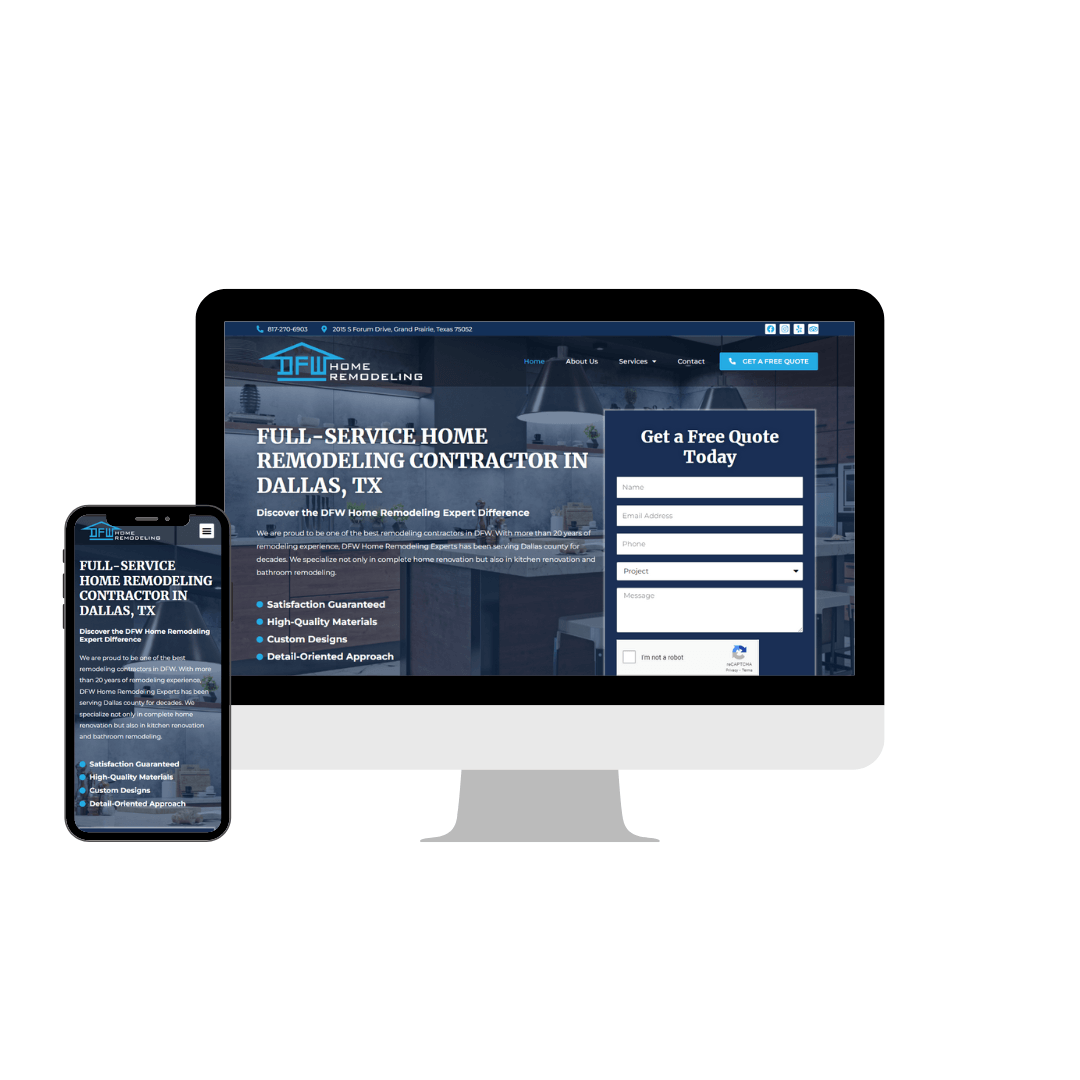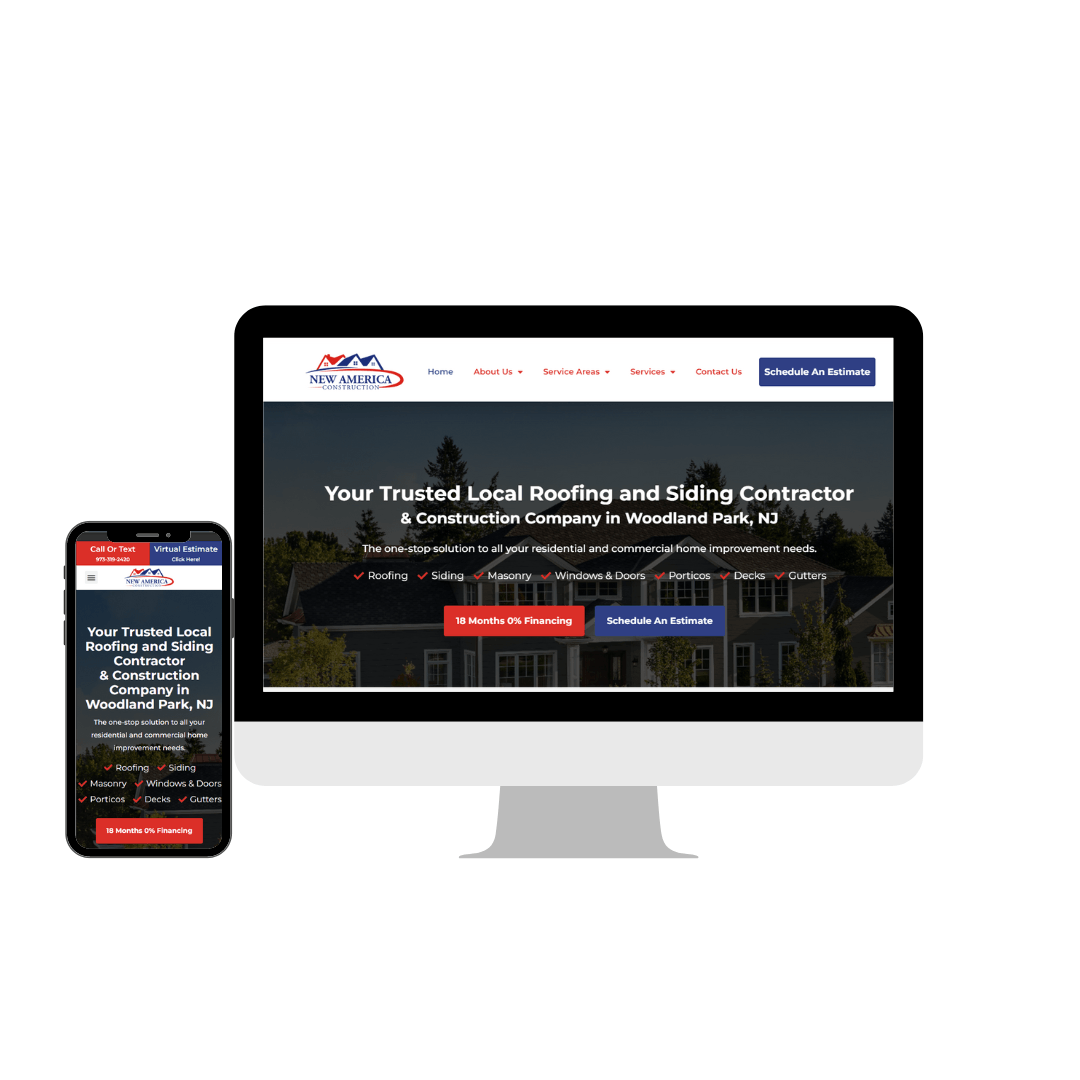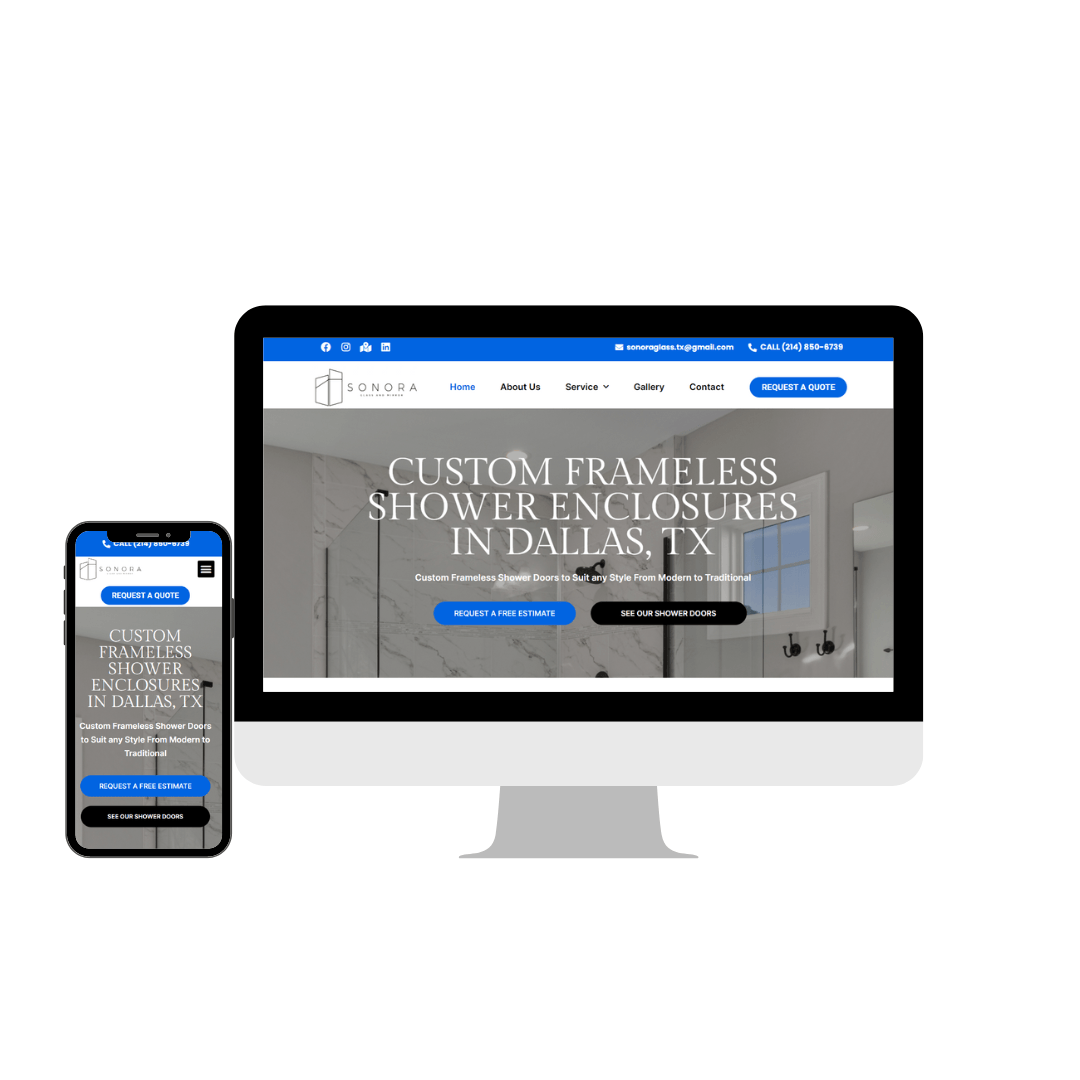Dominate Local Search - Get More Leads - Grow Your Business
Web Design Company in Dallas, Texas
Web Design & Development Services in Dallas
Welcome to our web design services in Dallas! We are a team of experienced and skilled web designers who are dedicated to creating beautiful and functional websites for our clients.
Our web design process begins with a consultation where we listen to your vision and goals for your website. We then create a custom web design plan that is tailored to your needs and preferences.
We use the latest web design technologies and techniques to ensure that your website is fast, responsive, and easy to use on all devices.

See Our Most Recent Web Designs



Our web design services in Dallas include:
- Custom website design: We create unique and professional website designs that reflect your brand and captivate your audience.
- Responsive design: We ensure that your website looks great and functions properly on all devices, including desktop computers, laptops, tablets, and smartphones.
- E-commerce design: We can design and develop an online store for your business, complete with secure payment processing and easy-to-use shopping cart and checkout systems.
- Search engine optimization (SEO): We optimize your website for search engines to improve its visibility and ranking on Google and other search engines.
- Content creation: We can create engaging and informative content for your website, including product descriptions, blog posts, and more.
What is Website Design For Lead Generation in Dallas?
Website design refers to the process of creating a website's visual appearance and user experience. This involves selecting the layout, colors, fonts, and images that will be used on the website, as well as creating the navigation and other interactive elements.
Website design also involves considering factors such as the target audience and the purpose of the website. The end goal of website design is to create a website that is visually appealing, easy to use, and effective at achieving its intended purpose.
Website design can play a crucial role in lead generation, which refers to the process of attracting and converting website visitors into leads or potential customers. A well-designed website can help to generate leads by making it easy for visitors to find the information they are looking for and take the desired action, whether that is filling out a contact form, signing up for a newsletter, or making a purchase.
Website Development For Home Service Companies
To design a website for lead generation, the website designer should focus on creating a user-friendly and engaging website that is optimized for search engines and converts visitors into leads. This may involve designing a clean and modern layout, using persuasive and compelling content, and including clear calls to action that encourage visitors to take the next step. The website should also be mobile-friendly and load quickly, as these factors can affect the user experience and conversion rates.
In addition to the design of the website, the website designer may also provide advice and support on lead generation strategies, such as search engine optimization (SEO) and conversion rate optimization (CRO). These techniques can help to improve the visibility and ranking of the website on search engines, as well as optimizing the website's design and content to increase the number of visitors who take the desired action.
SEO-Friendly Websites
An SEO-friendly website is a website that is designed and optimized to rank well on search engines, such as Google. This means that the website includes features and elements that are known to be important to search engines, and that it is structured in a way that makes it easy for search engines to crawl and index the website's content.
To create an SEO-friendly website, the website designer should consider the following factors:
- Keywords: The website should include keywords that are relevant to the website's content and the search queries of potential visitors. These keywords should be used in the website's content, title tags, and meta descriptions, as well as in the website's URLs and subheadings.
- User experience: The website should be easy to navigate and use, with a clear hierarchy and structure. This can help to improve the user experience, as well as making it easier for search engines to understand the website's content.
- Loading speed: The website should load quickly, as slow loading speeds can negatively impact the user experience and the website's ranking on search engines.
- Mobile-friendliness: The website should be optimized for mobile devices, as more and more people are using smartphones and tablets to browse the internet.
- Content: The website should have high-quality, unique, and informative content that is regularly updated. This can help to improve the website's ranking on search engines and attract potential customers.
By designing an SEO-friendly website, a website designer can help a business or individual to improve their website's visibility and ranking on search engines, which can lead to more organic traffic and potential customers.
Why Responsive Web Page Design is Essential?
Responsive web page design is essential because it ensures that a website looks and functions properly on all devices, including desktop computers, laptops, tablets, and smartphones.
This is important because more and more people are using mobile devices to browse the internet, and a website that is not optimized for mobile devices can have a negative impact on the user experience and the website's performance.
There are several reasons why responsive web page design is essential:
- Improved user experience: A responsive website provides a consistent and seamless experience across all devices, regardless of the screen size or resolution. This can improve the user experience, as visitors are more likely to stay on the website and interact with its content if it is easy to use and navigate on their device.
- Increased visibility and ranking: Search engines, such as Google, give priority to websites that are mobile-friendly in their search results. This means that a responsive website is more likely to rank well on search engines and attract organic traffic.
Better conversion rates: A responsive website is more likely to convert visitors into customers, as it is easier for them to take the desired action, such as filling out a contact for or making a purchase.
Overall, responsive web page design is essential for providing a positive user experience, improving a website's visibility and ranking on search engines, and increasing conversion rates.

Intmetric was created to help local businesses grow in revenue through local and google maps search engine optimization by utilizing proven strategies that get results fast.

Quick Links
@ 2024 Intmetric | Privacy Policy | Website Disclaimer | Campaign Terms | Monday- Friday 9am-5pm CT




